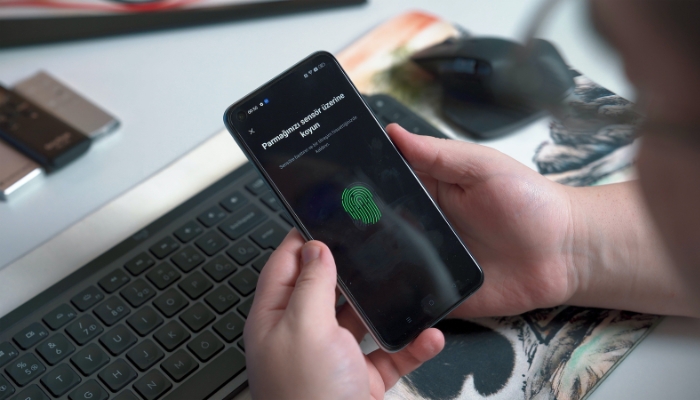
You’ve likely heard of catfishing, but do you know how to deal with catfishing? Catfishing is when someone pretends to be someone else online, often to trick others. To avoid being fooled, don’t share personal info with strangers online. If you’re unsure about someone, try a video chat to see if they are who they say they are. Use online search tools to check their photos and stories.
If you’re caught in a catfish situation, stop talking to the person, report them, and get help from friends or others. It’s important to look after your feelings because being catfished can be upsetting. Stay alert, check who you’re talking to, and keep your personal details safe.
Here, we’ll delve into what catfishing is, how to spot the red flags, and how to deal with catfishing if you’re a victim. You’ll also learn how to safeguard yourself and explore the legal avenues available. It’s time you leveled up your online safety game. Let’s dive in.
Table of contents
Understanding the Concept of Catfishing
You’ve probably heard the term ‘catfishing’ at least once, but to fully grasp its implications, you need to understand what it precisely means.
Catfishing is a deceptive activity where a person creates a fake profile on social media or online dating platforms to trick others, often in the context of romance scams. The catfish, the person behind the counterfeit persona, lures unsuspecting individuals into believing they’re someone they’re not.
Recognizing the signs of catfishing is crucial to protect yourself from such fraudulent activities. It’s an alarming trend that’s growing with the increasing popularity of social media and online dating.
Now that you’ve got a fundamental understanding of what catfishing is, let’s delve into identifying catfishing red flags in the next section.
Identifying Catfishing Red Flags

To protect yourself from becoming a victim of catfishing, it’s vital to recognize certain red flags that signal a potential scammer’s presence. Here are common signs often detected in a catfish relationship:
- Overly Perfect Profile: If the profile seems too good to be true, it might be. Scammers often use a fake profile picture to lure you in.
- Avoidance of Video Calls: Catfishers usually shy away from video calls since they can’t maintain their false identity.
- Rushing into a Relationship: Catfishers often rush into deep emotional involvement to manipulate their targets.
If suspicious, utilize a reverse image search to check if the profile picture is genuine. Identifying these red flags can help you avoid falling prey to catfishing.
Steps to Take if You’re Catfished

If you’re experiencing these red flags and suspect you’ve been catfished, the next step involves taking decisive action to protect yourself.
Begin by halting all communication with the suspected catfish. Remember, catfishing scams thrive on continuous interaction.
Next, gather all the information you have about the person’s fake identity. This includes conversations, photos, or any other evidence from your online relationship.
Report catfishing to the relevant social media platforms or dating app where you met the individual. They’ve mechanisms in place to deal with such instances and can help prevent others from falling for the same trick.
You should also consider reporting to law enforcement agencies. This not only aids in your protection but also contributes to combating this widespread issue.
In the following section, we’ll delve deeper into how you can proactively protect yourself from catfishing.
Protecting Yourself From Catfishing

By understanding the tactics used by catfishers, you can better equip yourself to avoid falling into their deceptive traps. Protecting yourself from catfishing, or in other words, knowing how to stop catfishing, is crucial, especially in the realm of online profiles and romantic relationships. Here are three key strategies:
- Be Skeptical: Don’t take every profile at face value. Romance scammers often create a false identity to lure you in.
- Do Your Research: Conduct a reverse image search of profile pictures and cross-verify information across different platforms.
- Don’t Share Personal Information: Keep your personal details confidential until you’re certain of the person’s identity.
Legal Recourses Against Catfishing
After you’ve taken steps to protect yourself, it’s important to understand what legal actions you can take in the unfortunate event of falling victim to catfishing.
Legal recourses against catfishing can be complex, depending on the extent of the crime. If the catfisher has committed identity theft, using someone else’s online identity, you have grounds to report this to law enforcement. You can also sue for damages if you’ve suffered financially.
Always conduct a background check if you suspect you’re dealing with catfishing. This can provide evidence for your case. Remember, it’s crucial to keep all conversations, images, or any other evidence that can be used in your favor. Consult with a lawyer familiar with internet fraud for further guidance.
Conclusion
In conclusion, understanding what catfishing is, recognizing the signs, and knowing what to do if you’re a victim is essential. Stay vigilant online, protect your personal information, and always verify profiles.
If you’re catfished, report it immediately. Legal avenues exist for redress, don’t hesitate to use them.
Remember, it’s not just about protecting yourself, but also helping prevent others from falling into the same trap.
FAQs
What are the common signs of a catfish relationship?
One of the common signs of a catfish relationship is when a person’s social media profile lacks depth, such as having few posts or interactions with others. If their profile pictures seem too perfect or are of stock photo quality, it could be a red flag. Additionally, if they are hesitant to share more photos or avoid video calls, suggesting a fake profile, you might be dealing with a catfish.
How can a reverse image search help in identifying a fake profile?
Using a reverse image search can reveal if the profile photo is taken from another source, indicating a fake identity. This tool searches the internet for images similar to the one you have, which can help uncover if the profile pictures are being used elsewhere on the internet, often revealing fake profiles.
Can catfishing scams lead to financial gain for the scammer?
Yes, romance scams often involve the catfisher manipulating the victim of catfishing into sending money, gifts, or providing access to bank accounts. The romance scammers may use feelings of guilt or promises of a future together to convince their victims to part with their money for supposed emergencies or financial gain.
Is it possible to have an authentic life after being a victim of catfishing?
Absolutely. Many people recover from a bad catfish experience and go on to have healthy, real-life romantic relationships. It’s important to learn from the experience and seek support if needed to deal with any toxic relationship aftermath. Remember, being a victim of catfishing does not define your ability to have an authentic life or real person connections in the future.